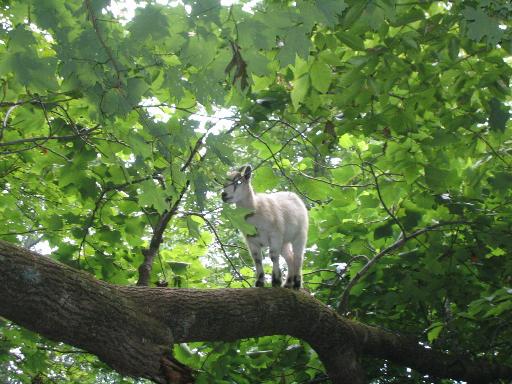Wildlife in Morocco
WILDLIFE WATCHING
 Morocco offers a tremendous diversity of habitats and climates which support a wide range of interesting species of mammals, birds, reptiles, amphibians, butterflies, plants and, most notably, birds - there are 460 bird species, 90 reptiles (50% more than in the whole of Europe) and 3,600 recognised plants, of which 17%are endemic.
Morocco offers a tremendous diversity of habitats and climates which support a wide range of interesting species of mammals, birds, reptiles, amphibians, butterflies, plants and, most notably, birds - there are 460 bird species, 90 reptiles (50% more than in the whole of Europe) and 3,600 recognised plants, of which 17%are endemic.
Ecosystems and species of particular interest include: the Barbary Macaque inhabiting the cedar forests of the Middle Atlas Mountains,the coastal Euphorbia heaths of the Atlantic Coast, the Argan Forest of the south west, the Atlantic coastal lagoons supporting a massive bird population, the coastal steppes, famous for the rare Bald Ibis, the alpine species on the High Atlas plateaus and the Mouflon in the High Atlas Mountains.
There are several National Parks and 2 Biosphere Reserves dedicated to protecting these endangered ecosystems.
Our Expertise
 Said has been employed full time as a guide for our clients since 1997. Said holds a degree in biology and geology and is extremely knowledgeable about local wildlife and related issues.
Said has been employed full time as a guide for our clients since 1997. Said holds a degree in biology and geology and is extremely knowledgeable about local wildlife and related issues.
Said has a particular passion for botany and ornithology and considerable experience in leading specialist groups. He is based at our guest house in Taroudant where we have a wide range of maps, displays and a well stocked specialist library; it is an ideal location due to easy access to areas of high biodiversity (including many endemic species) in the varied habitats of the Souss Valley, High Atlas and Anti Atlas Mountains (including a National Park and a Biosphere Reserve).
"Staying at Taroudant with our groups each year has been a wonderful experience. The hospitality and the food is first class and Said is a great companion in the field. Being close to the Atlas and right in the bird-rich Souss Valley makes it a superb base for a wildlife tour and Said's local knowledge has helped us no end. And you can pop down to the souk at the end of a long day enjoying the birds, flowers and butterflies before Fatima's superb tagines... what could be better?" Ian Green of Greentours:
Biodiversity
 The internationally important reserves in the vicinity are the Argan ForestBiosphere Reserve and the Souss Massa National Park, the latter is well known for its estuarine birdlife, but most particularly for the last remaining wild breeding colonies in the world of the Bald Ibis. Day visits to the Souss Massa National Park are offered weekly as part of the "Real Morocco" experience.
The internationally important reserves in the vicinity are the Argan ForestBiosphere Reserve and the Souss Massa National Park, the latter is well known for its estuarine birdlife, but most particularly for the last remaining wild breeding colonies in the world of the Bald Ibis. Day visits to the Souss Massa National Park are offered weekly as part of the "Real Morocco" experience.
For those with an interest in reptiles, tortoises, lizards, including geckoes and the spectacular Uramastix and chameleons are often spotted, especially in the south of Morocco; it is warm enough near Taroudant for tortoises to be out basking at Christmas (everywhere else this species hibernates). One hotel in Taroudant even has a collection of very large terrapins in its fountain.
Our Trips
Naturally Morocco run day trips from Taroudant for those wishing to have days out with Said investigating entire ecosystems or any particular species that interests you. Please contact us on 01239 710814 or 0845 3457195to discuss availability and your needs. For more information see our Natural History Download.
Wildlife in the Souss Massa
In Morocco there are 460 bird species, 90 reptiles (50% more than in the whole of Europe) and 3,600 recognised plants, of which 17% are endemic. The area is a "cross-roads" for flora and fauna from the Mediterranean, the Sahara & the Tropics with the addition of montane variations.
Bird Watching in the Souss Massa
Morocco enjoys a huge diversity of birds - 460 species - thanks to the vast range of habitats including a fascinating range of desert, montane and coastal habitats and the large number of migrant visitors.
Birdwatching
From our base in Taroudant we can offer a fully tailor-made birdwatching trip ranging from the internationally famous estuaries in the Souss Massa National Park and the Anti-Atlas and High Atlas Mountains, to lagoons in the north, montane sites near Oukaimden and to desert sites near Merzouga and Guelmim.
cco culture
 ,moroccan food,morocco food,moroccan cuisine,morocco beaches,moroccan meal,beaches in morocco,moroccan culture,hercules cave,hercules cave morocco
,moroccan food,morocco food,moroccan cuisine,morocco beaches,moroccan meal,beaches in morocco,moroccan culture,hercules cave,hercules cave morocco

Comments